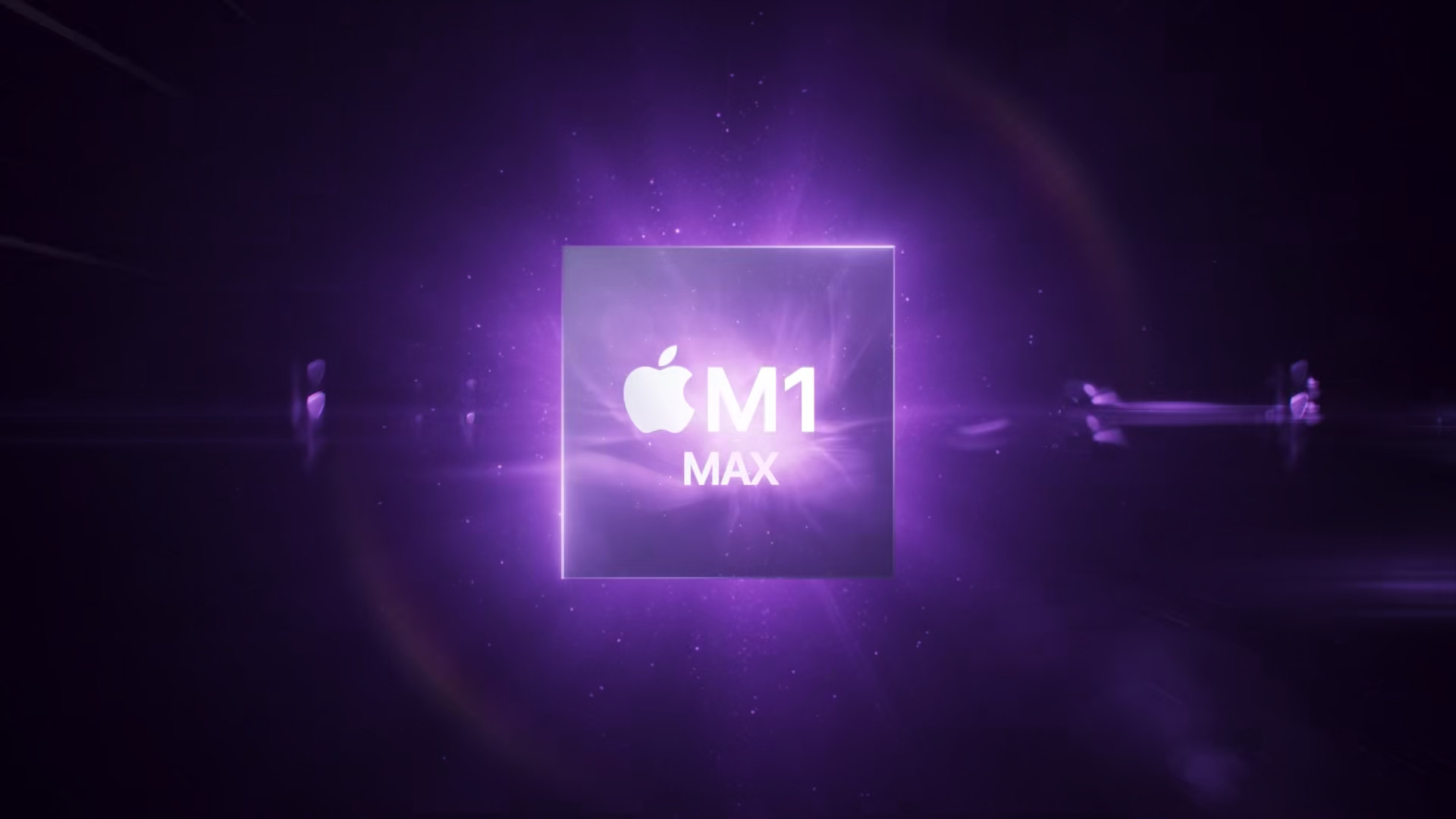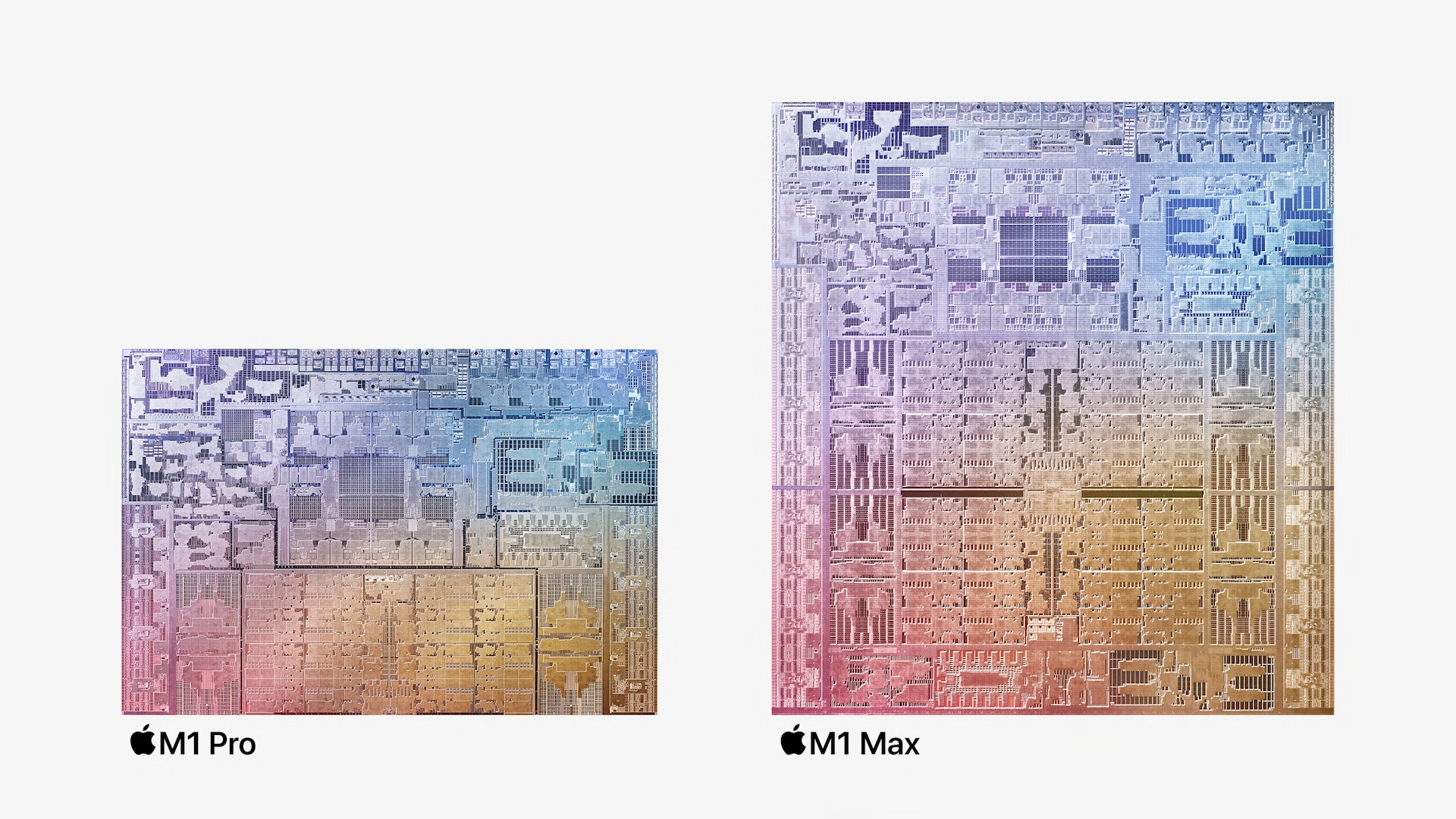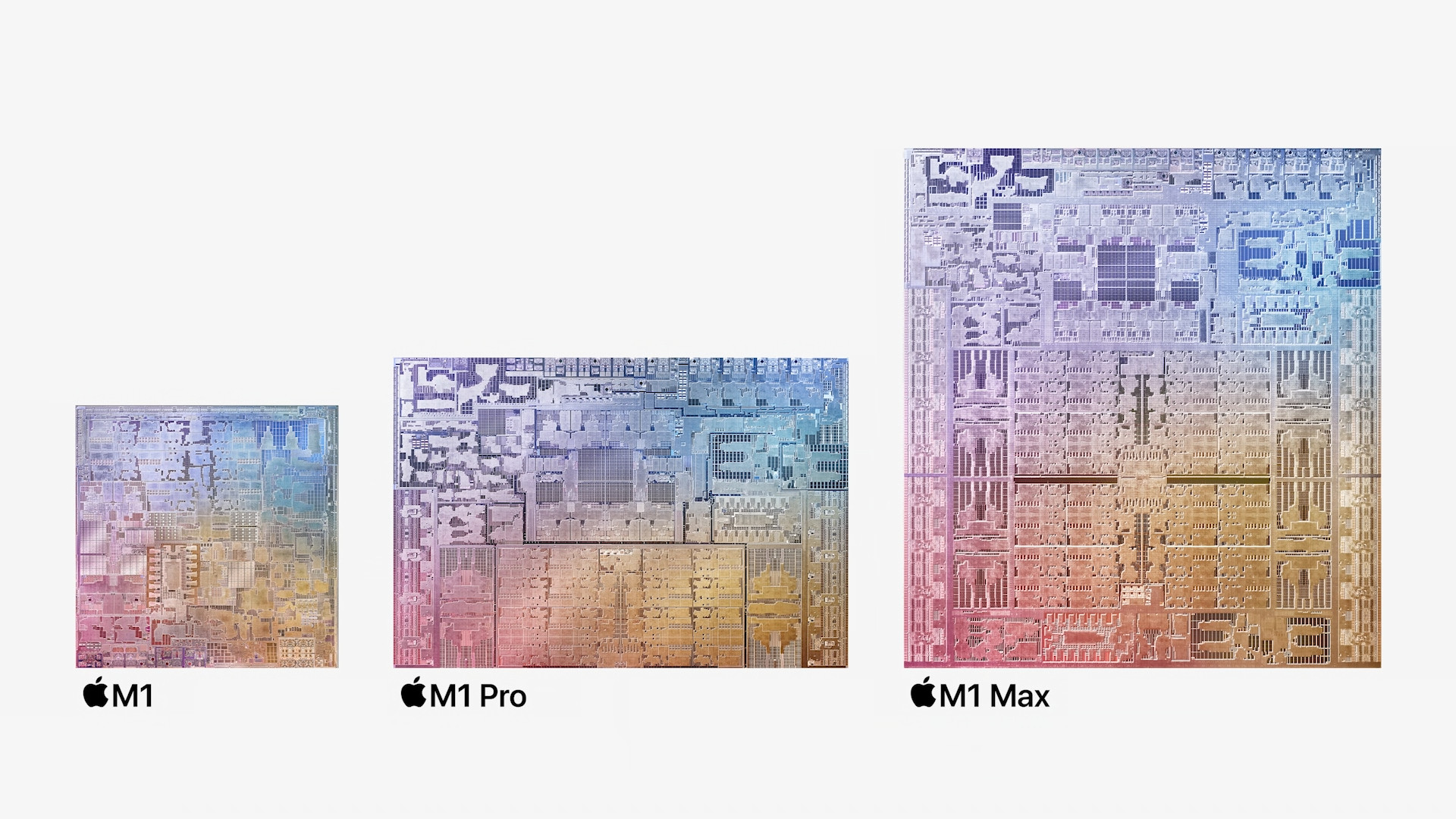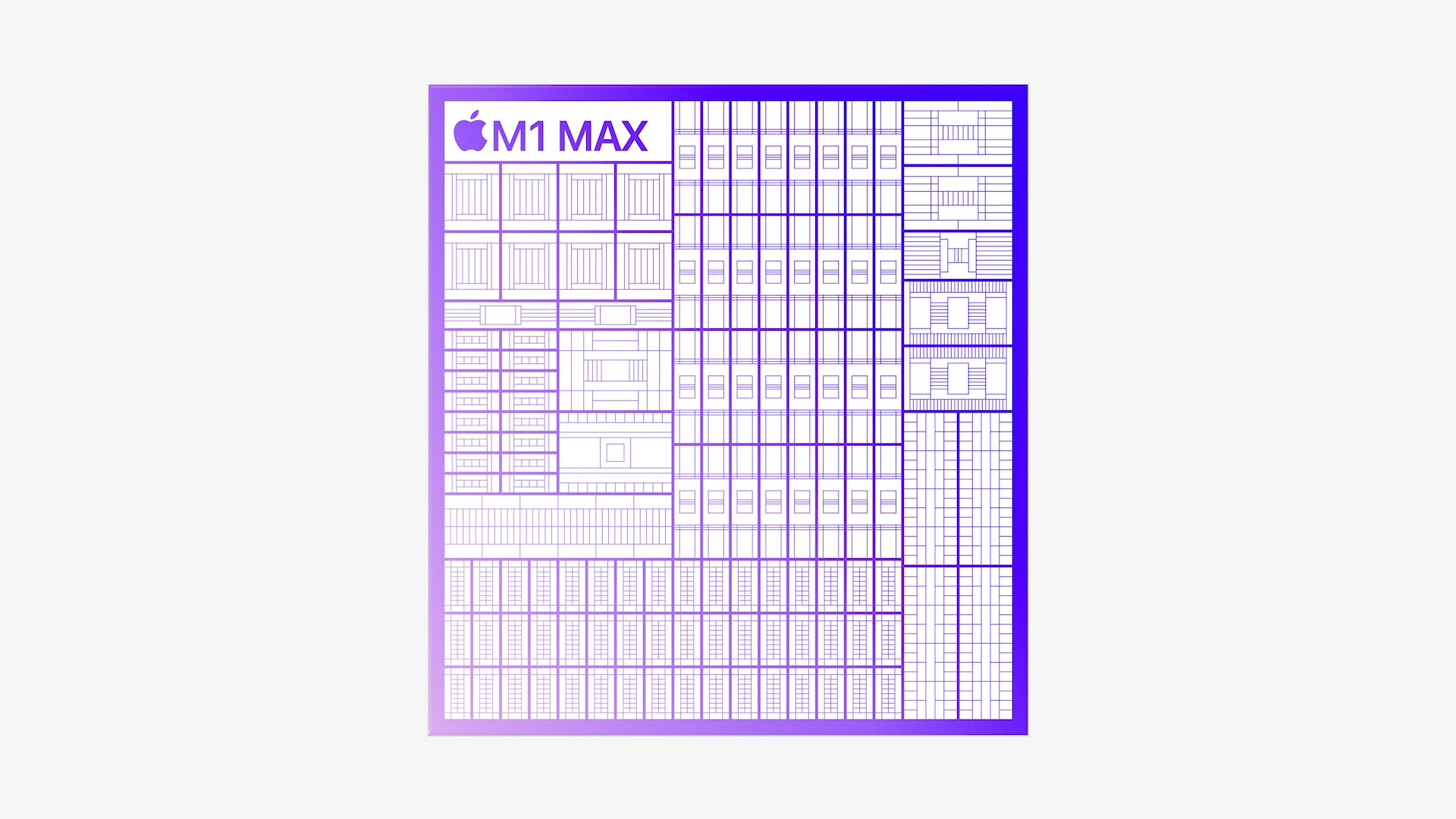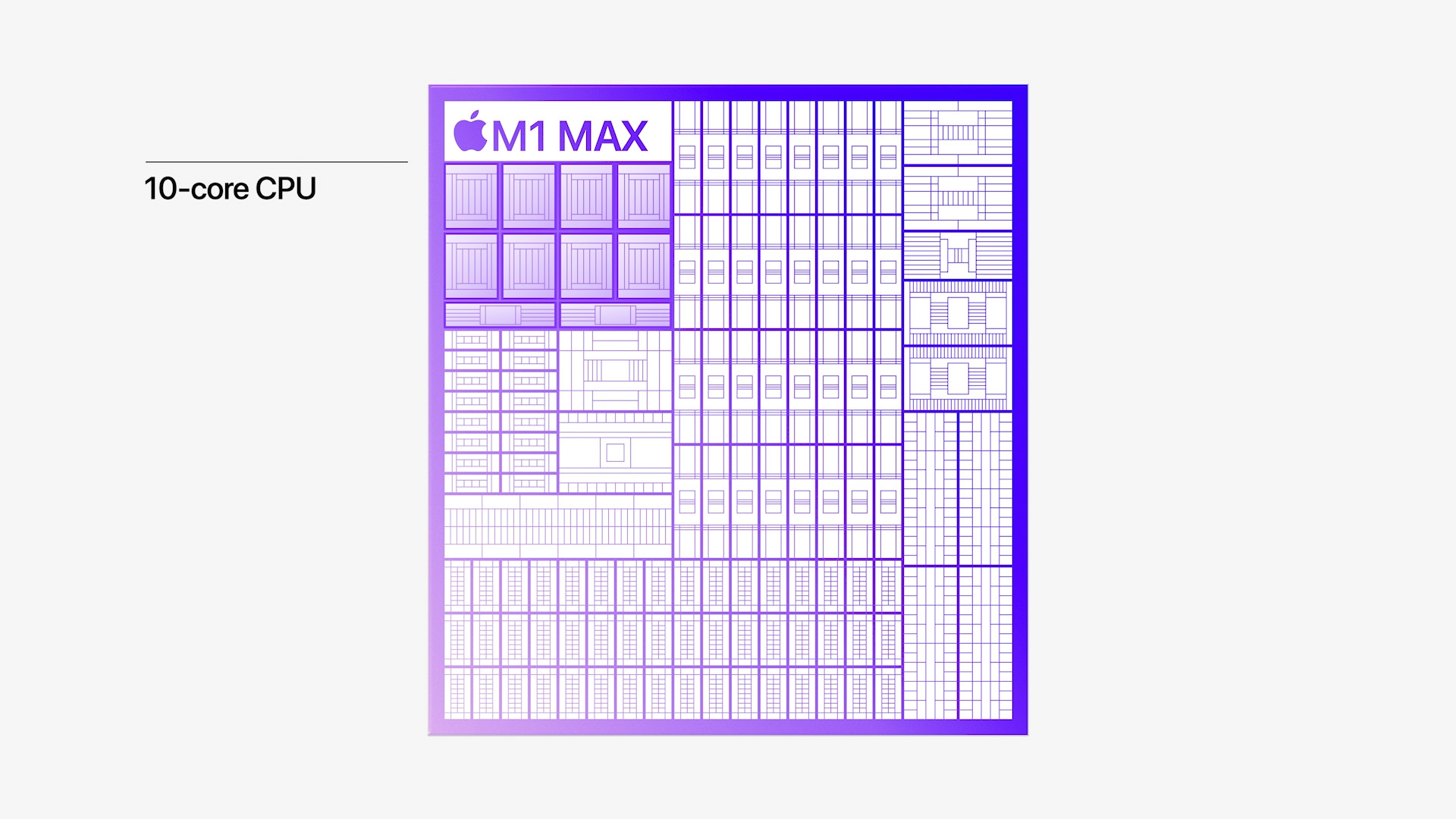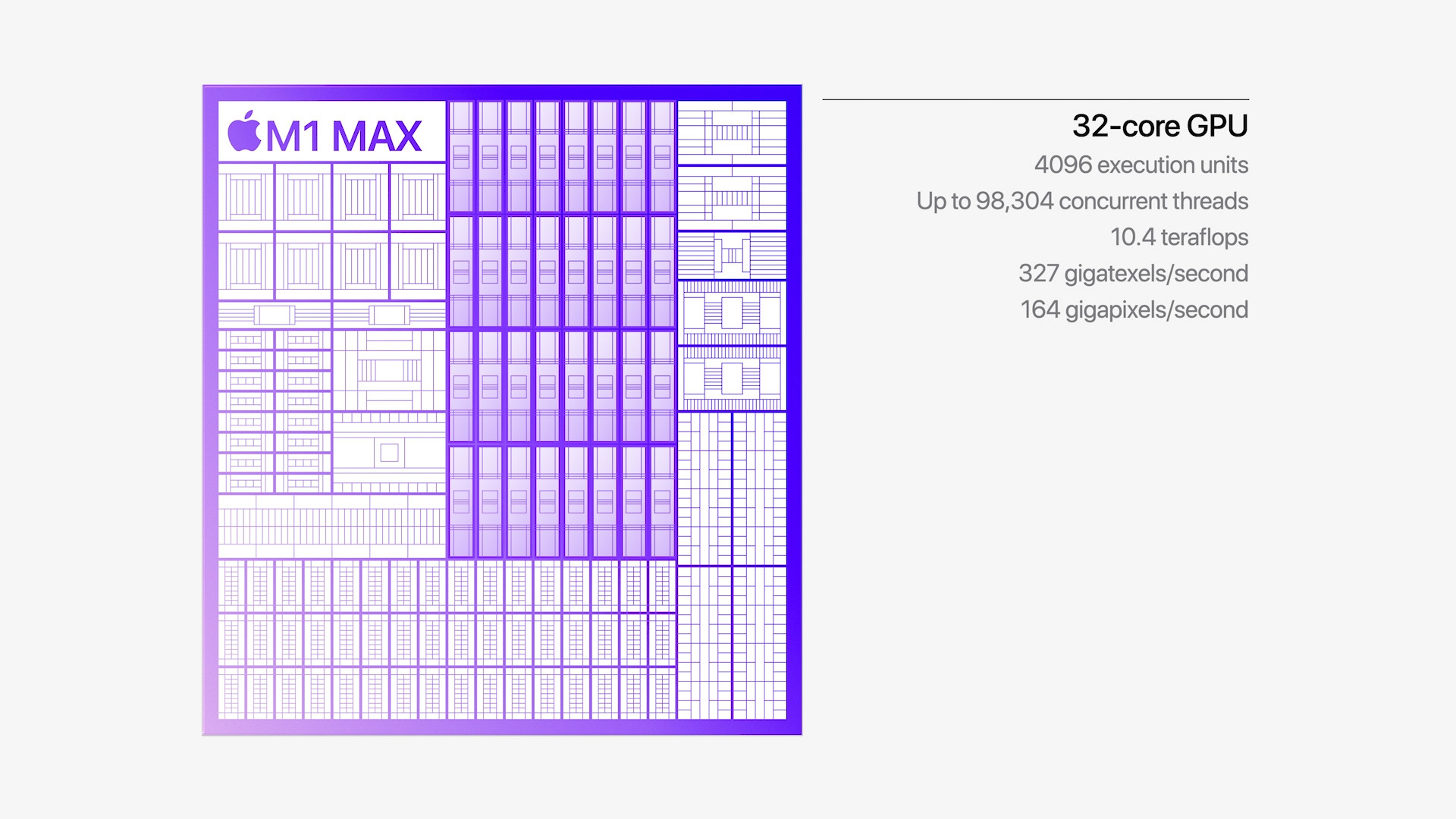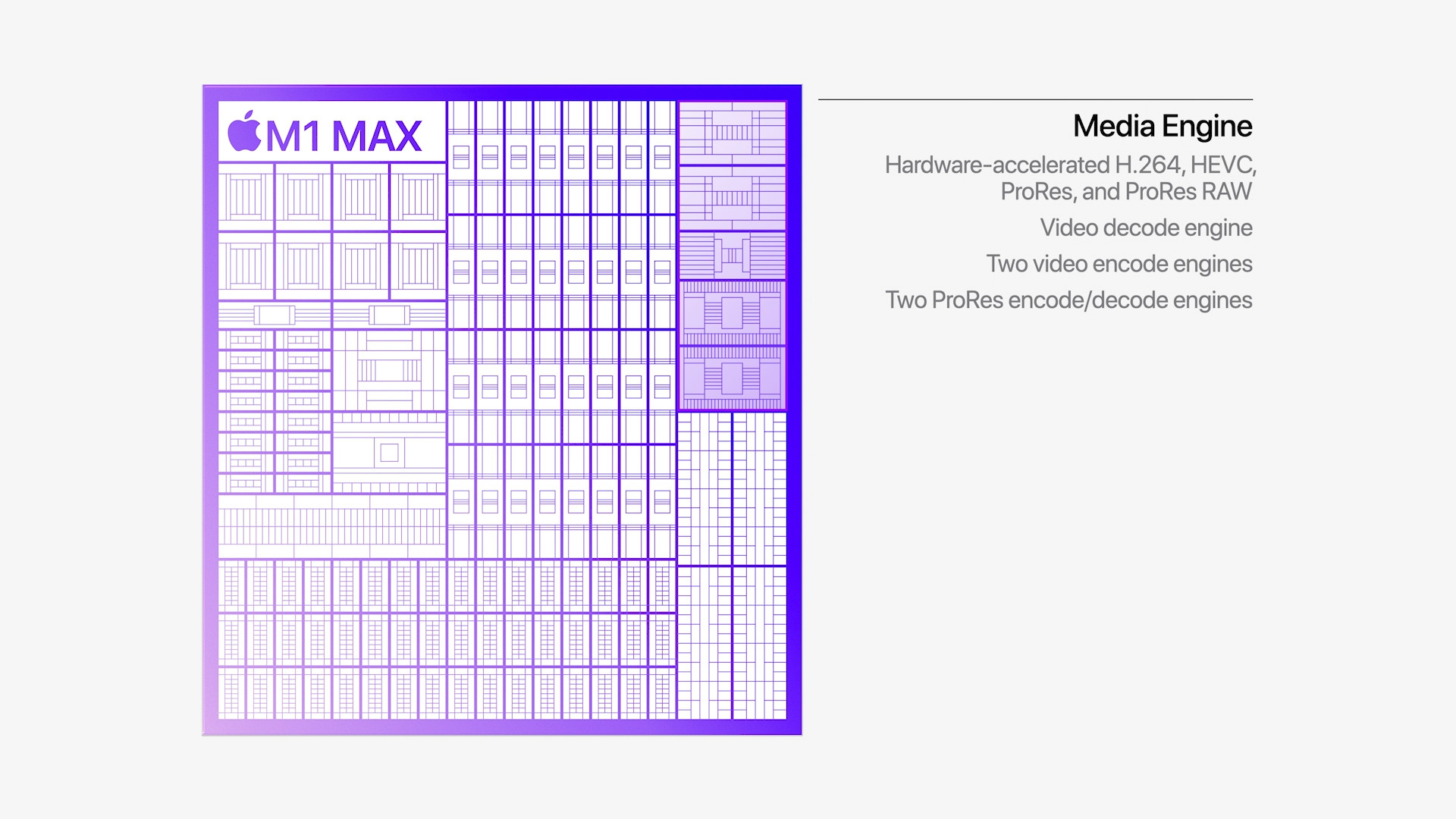At Monday's event, Apple showed the world its new M1 Pro and M1 Max chips. Both are intended for the company's professional portable computers, when it first installed them in the 14 and 16" MacBook Pros. The M1 Max is the tallest of the entire M1 range so far, making it a truly powerful monster. Look how much.
According to Apple, the M1 Max is the most powerful current chip for professional notebooks. It has 10 CPU cores, up to 32 GPU cores and a 16-core Neural Engine. It then processes graphic tasks 2x faster than the M1 Pro, when it also has twice the memory throughput. Additionally, it includes one media engine for decoding and two engines for twice-fast video encoding. Add to that two more ProRes accelerators for even more performance when working with many streams.
- 10 core CPU
- Up to 32 core GPUs
- Up to 64 GB of unified memory
- Memory bandwidth up to 400 GB/s
- Support for four external displays
- Playback of up to 7 streams of 8K ProRes video
- Superior energy efficiency
The world's most powerful chip in professional notebooks
The M1 Max is equipped with the same powerful 10-core chip as the M1 Pro, but adds a massive up to 32-core GPU for up to 4x faster graphics performance than the M1. There are thus 57 billion transistors, i.e. 70% more than the M1 Pro and 3,5 times more than the M1. Simply put, the M1 Max chip is the biggest chip Apple has ever built.
Its GPU thus provides performance comparable to a high-end GPU in a work PC notebook, while consuming up to 40% less power - as much as 100 W. It also means that less heat is generated, so the fans have to run less often and of course it affects battery life. Compared to the previous generation 13" MacBook, the M1 Max can render a timeline in Final Cut Pro up to 13x faster.
It could be interest you

To top it all off, the M1 Max also offers higher bandwidth on its chip, doubling the memory interface compared to the M1 Pro, up to 400GB/s, which is also nearly 6x the M1 chip. It is this that also enables the configuration of the M1 Max with up to 64 GB of fast unified memory.
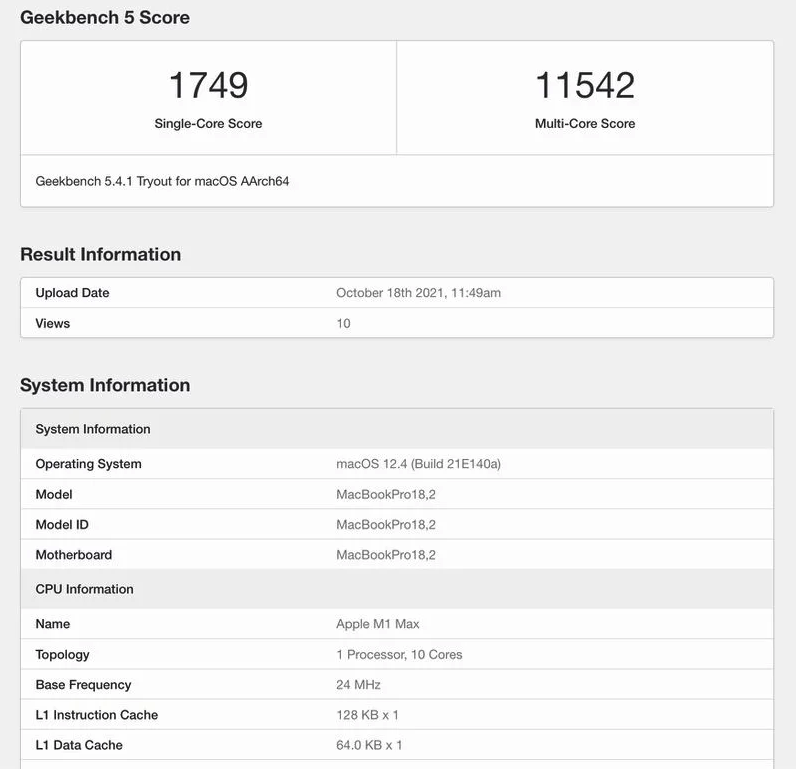
Just after the introduction of the chip, its alleged first appeared benchmarking. It shows that the chip has a single-core score of 1749 points and a multi-core score of 11542 points. This is a real double of the multi-core performance of the M1 chip, which is part of the 13" MacBook Pro introduced last fall. Based on these numbers, the M1 Max beats all chips in Apple computers except for the Mac Pro and iMac models equipped with top-of-the-line 16- to 24-core Intel Xeon chips. The multi-core score of 11542 is then on par with the late 2019 Mac Pro, which is equipped with a 12-core Intel Xeon W-3235 processor.
Available models with M1 Max chip:
- 14" MacBook Pro with 10-core CPU, 24-core GPU, 32 GB of unified memory and 512 GB SSD will cost you 84 crowns
- 14" MacBook Pro with 10-core CPU, 32-core GPU, 32 GB of unified memory and 512 GB SSD will cost you 90 crowns
- 16" MacBook Pro with 10-core CPU, 24-core GPU, 32 GB of unified memory and 512 GB SSD will cost you 90 crowns
- 16" MacBook Pro with 10-core CPU, 32-core GPU, 32 GB of unified memory and 512 GB SSD will cost you 96 crowns
- A 16" MacBook Pro with a 10-core CPU, 32-core GPU, 32 GB of unified memory and 1 TB SSD will cost you 102 crowns (a 990W USB-C power adapter is included)
- Newly introduced Apple products can be purchased, for example, at Alge, Mobile Emergency or u iStores
